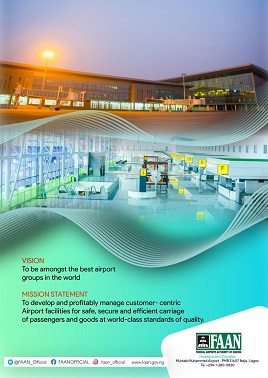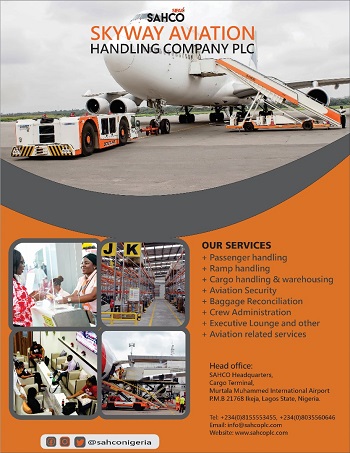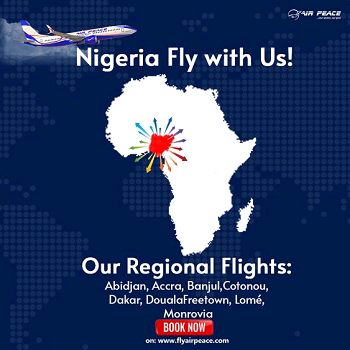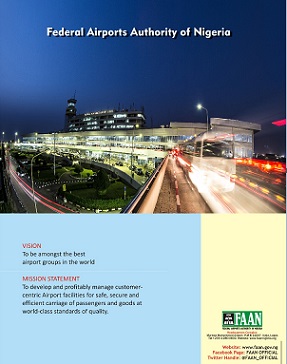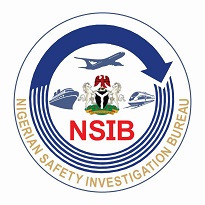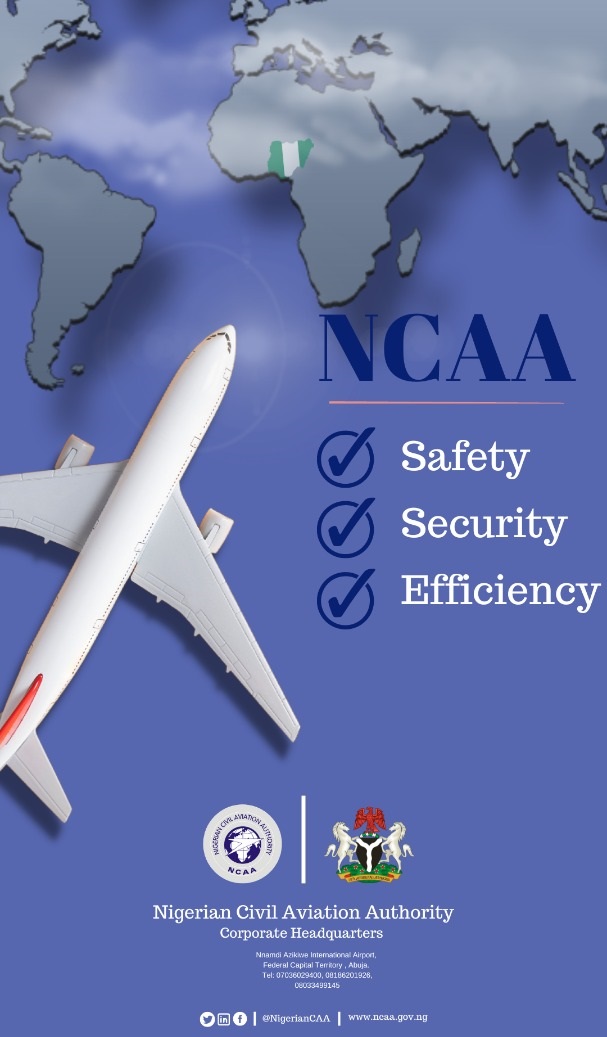
As the nation intensifies her efforts to restart her aviation industry after over three months of shutdown, to arrest the spread the spread of coronavirus in the country, industry stakeholders have canvassed the need for new strategies, palliative, deployment of technology to jump start the sector.
Speaking during a virtual conference organized by League of Aviation and Airports Correspondents ( LAAC) with the Topic: Strategic Responses to Changing time” stakeholders made up of industry regulators, operators, service providers and analysts all agreed that the industry would not be operated the way it used to be pre- COVID-19 pandemic. They therefore suggested that everyone must step out of their boxes, evolve new strategies that would see them converting the challenges brought by the pandemic to opportunity to boost the industry.
Setting the tune of the discussion, The Commissioner, Accident Investigation Bureau (AIB), Engr Akin Olateru admonished industry players to step out of their boxes and embrace new ideas to reposition the industry to profitability. Olateru who noted that the pandemic has affected every individual and corporate establishment within and outside the sector negatively, said disposable income of everyone in the society has reduced drastically. He, however expressed optimism that air transportation business remains viable because it remains the best option with the bad state of our roads, absence of railway system and time constraint associated with water mode of transportation.
Also President of Aviation Round Table Initiative ( ART) Dr. Gbenga Olowo who noted that since the situation on ground in the industry does not support gathering of crowd in a particular area at once, suggested that service providers especially airport operators and airlines should embrace technology that will simplify facilitation and reduce physical human contact to barest minimum.
In his contributions during the discussion, former Director General of Nigerian Civil Aviation Authority (NCAA) Dr. Harold Demuren while toeing the line of Olowo on deployment of technology in the industry also realised that sector needs serious funding on infrastructure. Demuren said, there are infrastructure gaps in the airports which Federal Airports Authority of Nigeria (FAAN) needs fund to put in place just as airlines need to raise their bar as far as operations are concerned.” He also canvassed single digit interest rate credit facility for the industry noting that the present rate can’t sustain the industry. The former chief regulator of aviation sector in Nigeria who also noted that the challenges induced by the COVID-19 pandemic are overwhelming, called on investors to turn the challenges to opportunities that would make them go higher. Subscribing to the idea that competition in the industry has changed from among airlines to between air passengers and technology, he therefore suggested that domestic airlines operators should look into advantages inherent in code sharing and interlining, saying “no passenger wants to come to the airport only to be told that flights are delayed or canceled under the new normal.”
In his contributions to the discussion, Managing Director of FAAN, Capt Rabiu Hamisu Yadudu said FAAN is working round the clock to ensure that its airports remain safe for both air passengers and airport users whenever operations resume. He explained that a lot of improvements and innovations have been brought in to the system to guarantee safety of the airport users. Yadudu added space marking that would help maintain social distancing and other protocols prescribed by National Centre for Disease Control (NCDC) have been put in place, He suggested that to avoid crowding, passengers should arrive at the airport early for their flights. Yadudu who observed that the COVID-19 pandemic has brought stakeholders closer to think on how best to move the industry forward, urged for sustenance of the tempo for the betterment of the industry.
Group Managing Director, NAHCOaviance Plc, Mrs. Olatokunbo Fagbemi who said the sustainability of ground handling businesses in the aviation industry is tied to successful airline operations, equally believed that this is the best time for the industry to restrategise to reposition itself to profitability.
Fagbemi who said her subsector of the industry has been operating skeletal services since the shutdown, however reasoned that with the new development there is no way many people would be allowed to work together in a very close environment. She said workers, for sake of their health, would be brought in at different interval to avoid crowding.
In his contributions to the discussion, Chairman/ Chief Executive Officer, Air Peace, Barrister Allen Onyema noted that it is very obvious that palliative is needed not only in the aviation sector but in all other sectors of the economy to sustain sources of livelihood, guarantee job retention and security. Though he said he wasn’t canvassing for palliatives for business expansion, but the one that would assist in retaining jobs through payment of salaries. He decried the present condition in which disposable income of everyone has shrunk, and people are losing their jobs. He lamented that if the thread is not arrested it may worsen state of insecurity in the country. The Air Peace leader who decried losses being incurred on daily basis by airlines, while the sector remains shut, said aircraft have remained on ground for close to three months without flying, yet insurance are paid in hard currencies and maintenance are ongoing. He said on most occasions the maintenance of the aircraft are paid for in foreign currencies without revenue earned.
On the issue of removal of the middle seat in aircraft during flights to avoid human contact, Onyema expressed his disagreement with the idea, saying it is not practicable especially on the domestic routes without a fare hike which would not be affordable to many air passengers. He suggested that since the longest flight in the country is less than two hours, passengers would be boarded according to their seats and disembarked in similar manner they boarded. He reasoned that since there would be no longer serving of catering during domestic flights, passengers would have little or no contact with one another during flights.
“On this issue of middle seat, this is not practicable because if we do, air fare will shoot up beyond the reach of many air passengers. What we could do is that passengers would be boarded according to their seats; window side first, then followed by the next and those near the aisle. Since there wouldn’t be feeding during the one hour flight, passengers would remain in their seats throughout the flight and would be disembarked in an orderly manner when they get to their destinations. There is no fear of contamination in our aircraft, we have put in the necessary cleaning measures in place. The Airport is where passengers can get contaminated; hence our appeal to FAAN to put everything in order.”
Onyema who also disagreed with idea of introducing slots into operations of airlines said, it is counterproductive. He believed that the slot arrangement would reduce airlines’ hour of operations since most domestic airports in the country operate during day time, he therefore argued that his operations would be limited to only eight or ten hours of the day.
An industry analyst, Ms Sindy Foster while chipping in her contributions to the discussion, suggested that Nigerian investors should come out of their boxes and look into other business models that would boost the economy since petroleum, the main stay of the nation economy has ran into trouble in international market. Foster suggested that more efforts should be diverted to agricultural sector where the nation has been recording avoidable losses because poor investments. She encouraged investors to embrace agricultural produces and corporate governance in their new lines of businesses. On the the issue of removal of middle seats, Foster said it is not practicable if airlines are to break even in their operations.
Director General of NCAA Capt Musa Nuhu in his contributions said, the issue of removal of the middle seats is ongoing and yet to be concluded on.
The Director General who was represented by the Director, Consumer Protection, NCAA, Alhaji Adamu Abdullahi said that NCAA is working with National Centre for Disease Control ( NCDC), International Civil Aviation Organization (ICAO) and other inteenational agencies to gaurantee the safety of air passengers and other users of the airport by the time the sector would return to operations.
- In their closing remarks, the discussants admonished stakeholders to begin to think out of their boxes especially on how to grow businesses without compromising standard. They need to review their business models. FAAN and airlines were enjoined to support business and simplify processes to avoid losses which is important to improve the bottom line. They emphasized strong collaboration with the optimism that the industry would get out of the crises and flourish if only it is brought out of the box.


